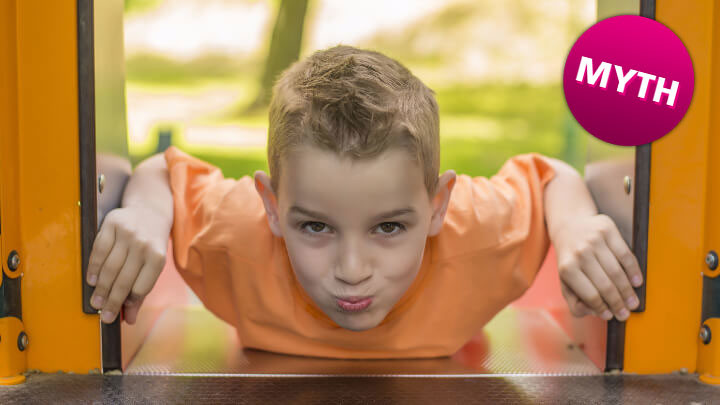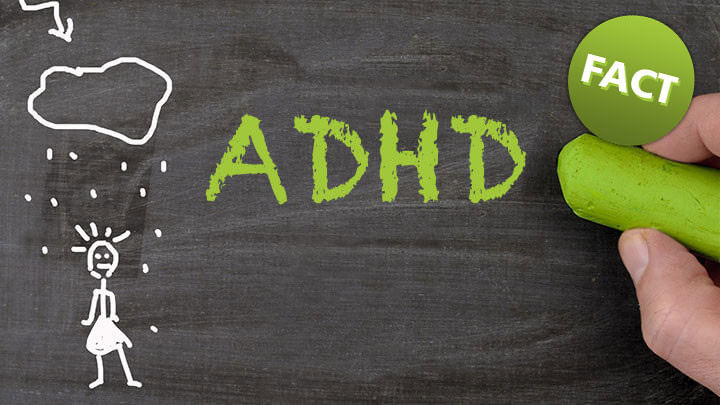ADHD therapy: Myths and facts
ADHD is still marred by many prejudices. For example, affected families are often blamed for wrong parenting as being the cause of a child's conspicuous behaviour. Also, it is alleged time and again that ADHD is an "invented" condition which actually does not exist at all and that medication is given just to keep the little ones quiet.
But what is really true? Find out more about it here.

ADHD children have just bad upbringing
Fact is that, with ADHD, brain metabolism is impaired and there is an imbalance of the neurotransmitters dopamine and noradrenaline. This impairment is probably genetic. Thus, the disease is not caused by wrong upbringing. It is true, however, that symptoms may be reinforced by unfavourable circumstances and parenting methods. Accordingly, professional parent training may be an important element in ADHD therapy.

ADHD is a disease
The answer is: Yes! According to definition, ADHD is a neurobiologically determined disease which is hereditary. It is also described in the International Classification of Diseases(ICD) of the World Health Organisation. The three core ADHD symptoms are attention problems, hyperactivity and impulsiveness.

ADHD actually does not exist at all
Time and again, it is alleged that ADHD is just a fad diagnosis. Actually, ADHD had been described for the first time already in 1932 – by the physicians Franz Kramer and Hans Pollnow in Germany. And in his world-famous children's book "Der Struwwelpeter" (Shockheaded Peter), the German neurologist Dr. Heinrich Hoffmann from Frankfurt describes the symptoms of ADHD – that was in 1845, at that time when the condition had no name as yet. What's true is that the number of diagnosed cases increased over the last two decades. Experts attribute this to the fact that the condition has meanwhile become known to each and every doctor and can thus be diagnosed faster and better. According to the figures, approximately two to six percent of all children and adolescents have ADHD. Boys are more frequently affected than girls.

ADHD medications change one's personality
Many parents fear that ADHD medication might change the personality of their child. Facts are: Stimulants, which are used most frequently with ADHD, normalise the impaired brain metabolism. They effect a reduction of the typical ADHD symptoms – such as attention problems, hyperactivity and impulsiveness. Due to that, affected children are often only enabled at all to concentrate better and no longer be so hyperactive and impulsive. These changes may be unusual at first for the child's surroundings. Yet, they are important so that ADHD children will have age-appropriate development, that they use their strengths and talents and are also able to gain positive social experiences in family and school.

ADHD is easily treatable
Once the condition has been diagnosed and a suitable therapy initiated, important steps have already been taken. In the individual case, various therapy modules are precisely matched to the child's specific needs – such as behavioural therapy, parent and teacher training and, if necessary, medications. Customized treatment is a central prerequisite for the children to develop age-appropriately, have good relationships and are able to specifically use their talents. It is important that they obtain the necessary support in family and school and that their strengths and talents are identified and appreciated.
How to specifically support and foster your child's self-confidence,find out here.